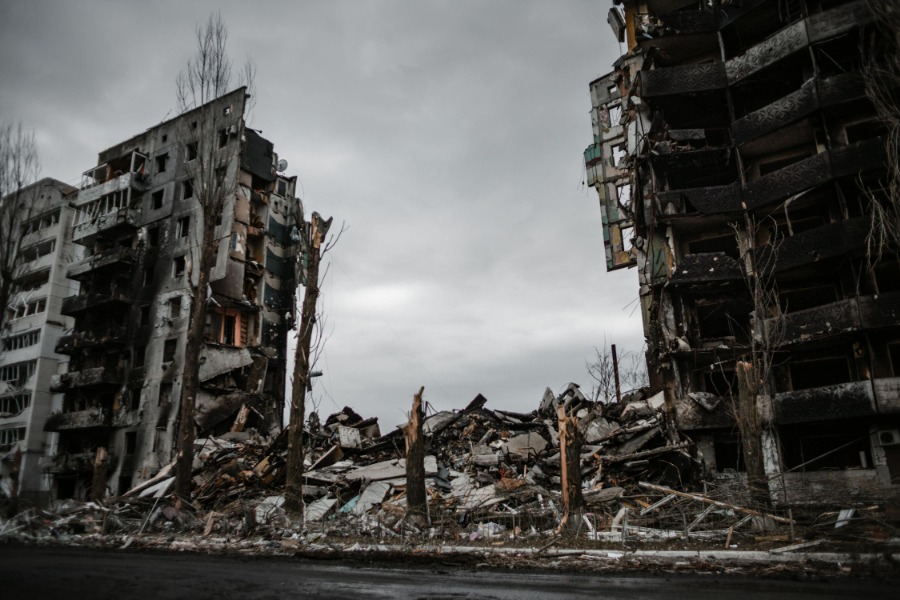President Trump, Guo Wengui and an Odd Series of Events
On Sunday, the Wall Street Journal reported a story of diplomatic intrigue related to China’s efforts to silence the outspoken exiled billionaire Guo Wengui. According to the Journal, in May Chinese officials visited Guo in New York and demanded he return to China. In response, the FBI confronted them at Penn Station for violating the terms of their visas.
Published by The Lawfare Institute
in Cooperation With

On Sunday, the Wall Street Journal reported a story of diplomatic intrigue related to China’s efforts to silence the outspoken exiled billionaire Guo Wengui. According to the Journal, in May Chinese officials visited Guo in New York and demanded he return to China. In response, the FBI confronted them at Penn Station for violating the terms of their visas. To avoid a diplomatic incident, the State Department put pressure on the FBI to not arrest the officials. The story also includes the revelation that Steve Wynn, a casino magnate with connections to China, personally delivered a letter to Trump from the Chinese government that demanded the Guo’s arrest.
The Journal reports that:
Some U.S. national security officials view Mr. Guo, who claims to have potentially valuable information on top Chinese officials and business magnates and on North Korea, as a useful bargaining chip to use with Beijing, the people said.
The episode took a twist when President Donald Trump received a letter from the Chinese government, hand-delivered by Steve Wynn, a Las Vegas casino magnate with interests in the Chinese gambling enclave of Macau. Mr. Trump initially expressed interest in helping the Chinese government by deporting Mr. Guo, but other senior officials worked to block any such move, according to people familiar with the matter.
The article offers some context to a series of recent developments in Guo’s case, most of which have received little media attention. Below is a timeline overview.
Guo—also known as Miles Kwok—has spoken out against corruption in the highest echelons of the Chinese government. In response, China issued an Interpol red notice for his arrest earlier this year. Chinese law enforcement launched 19 separate criminal prosecutions against Guo, including charges of bribery, kidnapping, corruption and rape. In early September, Guo applied for political asylum in the United States.
On August 28, Rep. Ed Royce, the Chairman of the House foreign affairs committee, and Sen. Marco Rubio inquired about whether VOA News was responding to Chinese government pressure when it cut short a live broadcast of an interview with Guo in April. After the VOA abruptly ended the segment, five employees at the VOA’s Mandarin service were placed on administrative leave. A VOA employee said that Beijing threatened the visas of several reporters in China.
A month later, the Washington Free Beacon reported on September 29 that the FBI was investigating a cyber intrusion into Clark Hill, a law firm that had been advising Guo on his political asylum application. According to reports, private investigators have linked the intrusion to China and South Korea. Shortly thereafter, an anonymous Twitter account began posting confidential documents, including Guo’s application documents. One post identified the names of two FBI agents working with Guo. Twitter has since suspended that account. Clark Hill no longer represents Guo.
Then, on October 1, the New York Times reported that Facebook took down a profile and a page associated with Guo. It said Guo had disclosed someone else’s personally identifiable information, a violation of Facebook’s rules.
On October 3, the Hudson Institute, a D.C. think tank, postponed an appearance by Guo scheduled for the following day. A Hudson spokesperson said that the institute’s website suffered a denial of service attack traced to Shanghai. The Wall Street Journal reported that the Chinese embassy had pressured Hudson to cancel, threatening the visas of Hudson scholars planning to visit China. Hudson’s spokesperson denied such pressure been successful, saying instead, “The planning just got away from us and we feel bad.”
The Journal reported on October 6 that Attorney General Jeff Sessions discussed the Hudson hack with China’s Public Security Minister, Guo Shengkun, during a high-level meeting on October 4 for the U.S.-China Law Enforcement and Cybersecurity Dialogue. A Justice Department spokesperson said China had “pledged to cooperate” on the matter. However, the Justice Department’s readout of the dialogue made no mention of the hack. It did include a joint pledge for both countries to identify fugitives and make plans to discuss their extradition.
The next day, Reuters reported that China denied responsibility for both attacks. The Ministry of Public Security said it had “no evidence” of involvement from any element in the Chinese government. In a statement, it said that the information came from a “non-traditional mainstream media outlet” and questioned the credibility of the reporting. It further called the information that Guo presented in a press conference on October 5 about Chinese efforts to send spies to the U.S. “utterly clumsily forged and full of obvious mistakes.”
Finally, in a strange twist on October 11, Guo tweeted a picture of himself with Steve Bannon at his apartment. He said that Bannon had met him at the October 5 press conference and that Bannon then had a three-hour dinner with him on October 10.
These stories lead to more questions than answers. Did China put pressure on VOA to cut short its broadcast? What caused the cancellation of the Hudson event? How are internal divisions within the Trump administration over China policy influencing its handling of Guo’s case? And what prompted Attorney General Sessions to raise the issue with his Chinese counterpart—-then omit it from the record of the conversation?
More reporting could help clarify the ongoing effects of Chinese pressure on the institutions that are handling Guo’s asylum claim. And the latest reports would seem to indicate that President Trump himself might know the answers.





